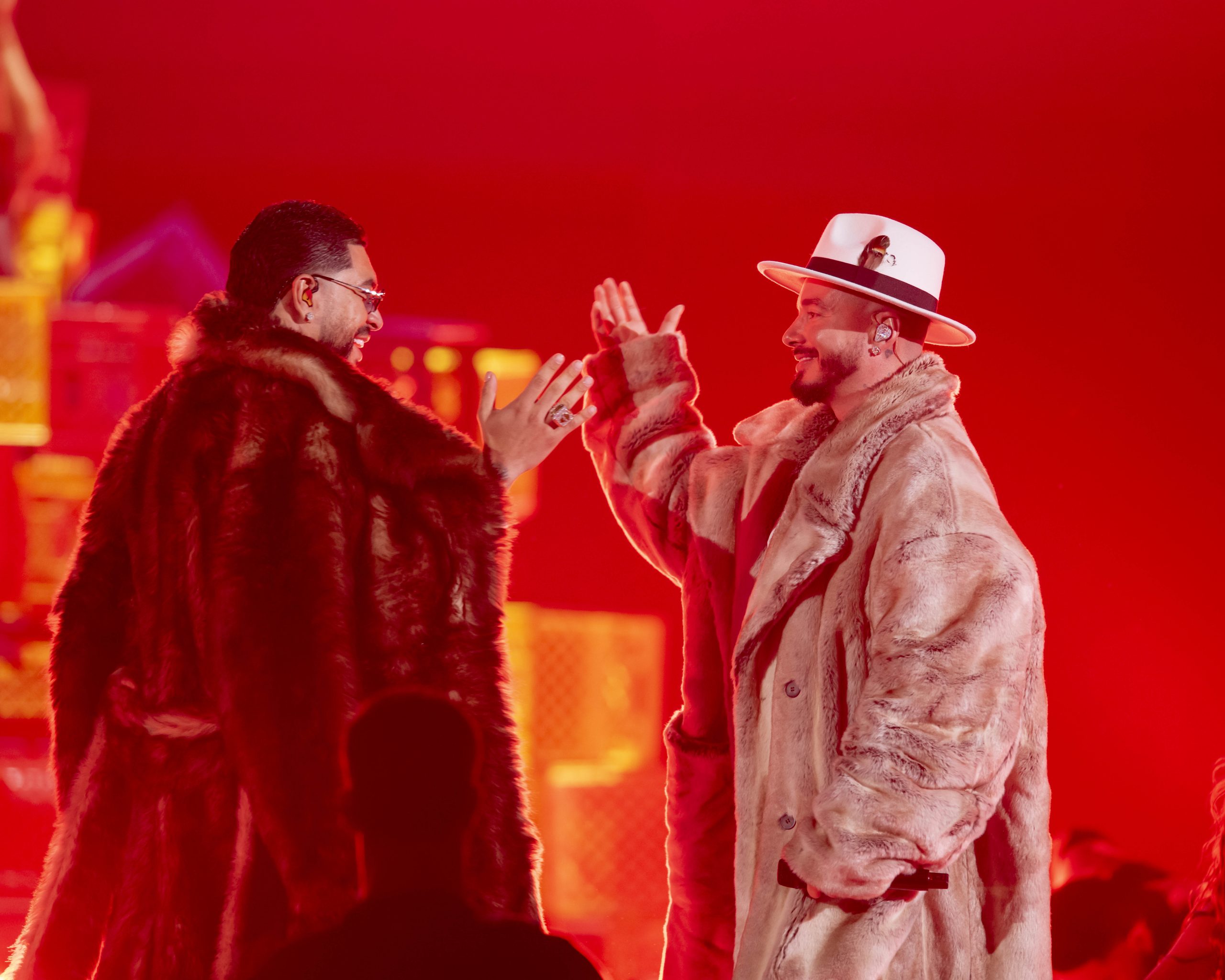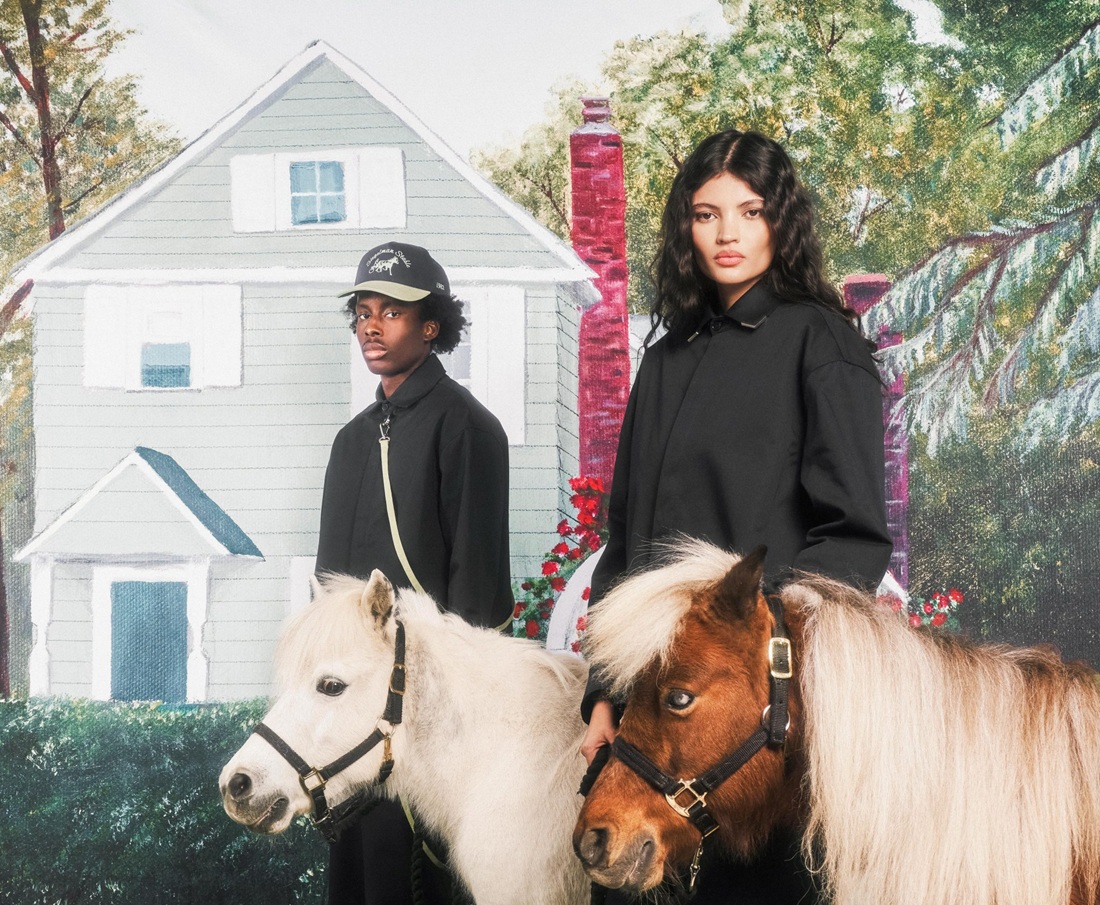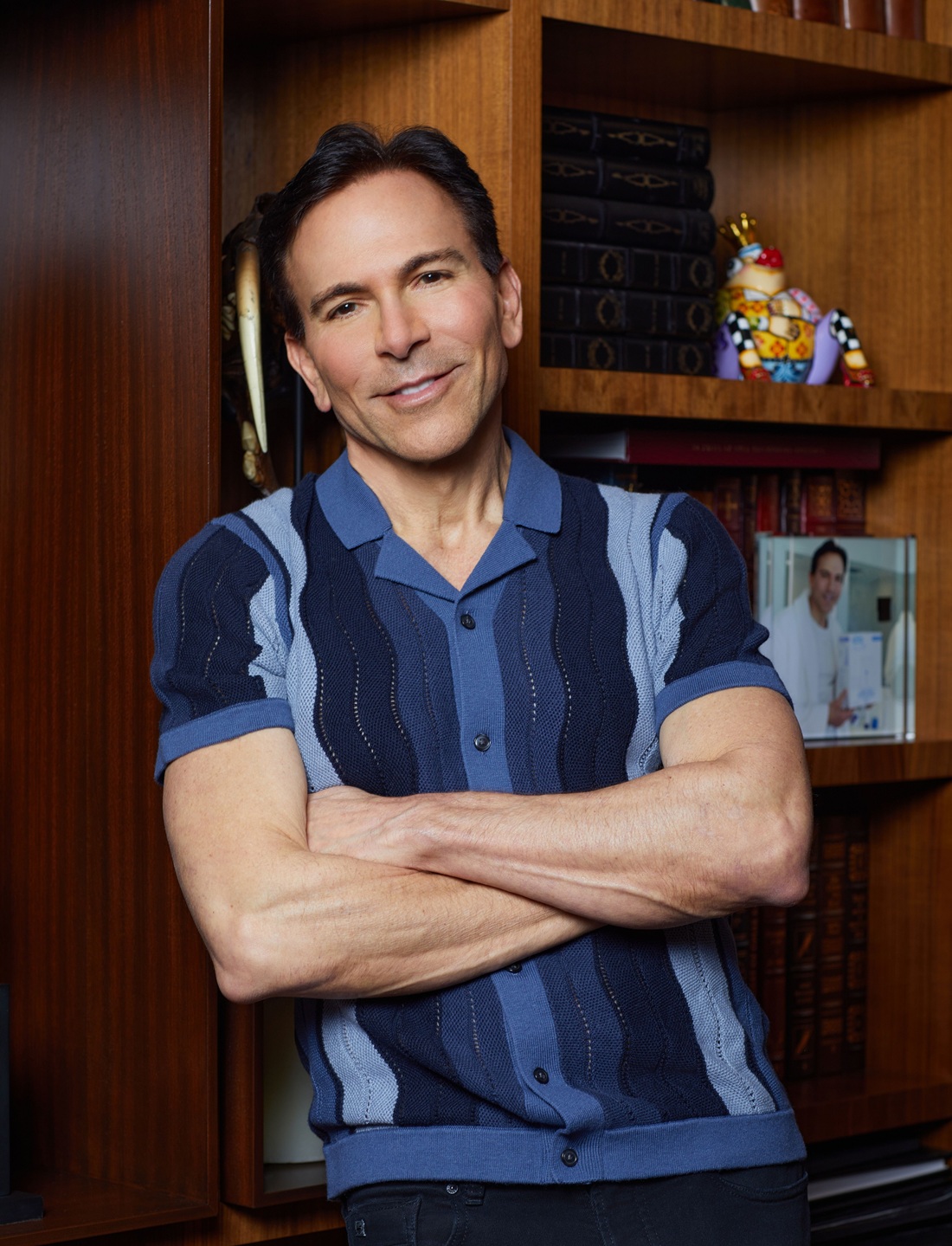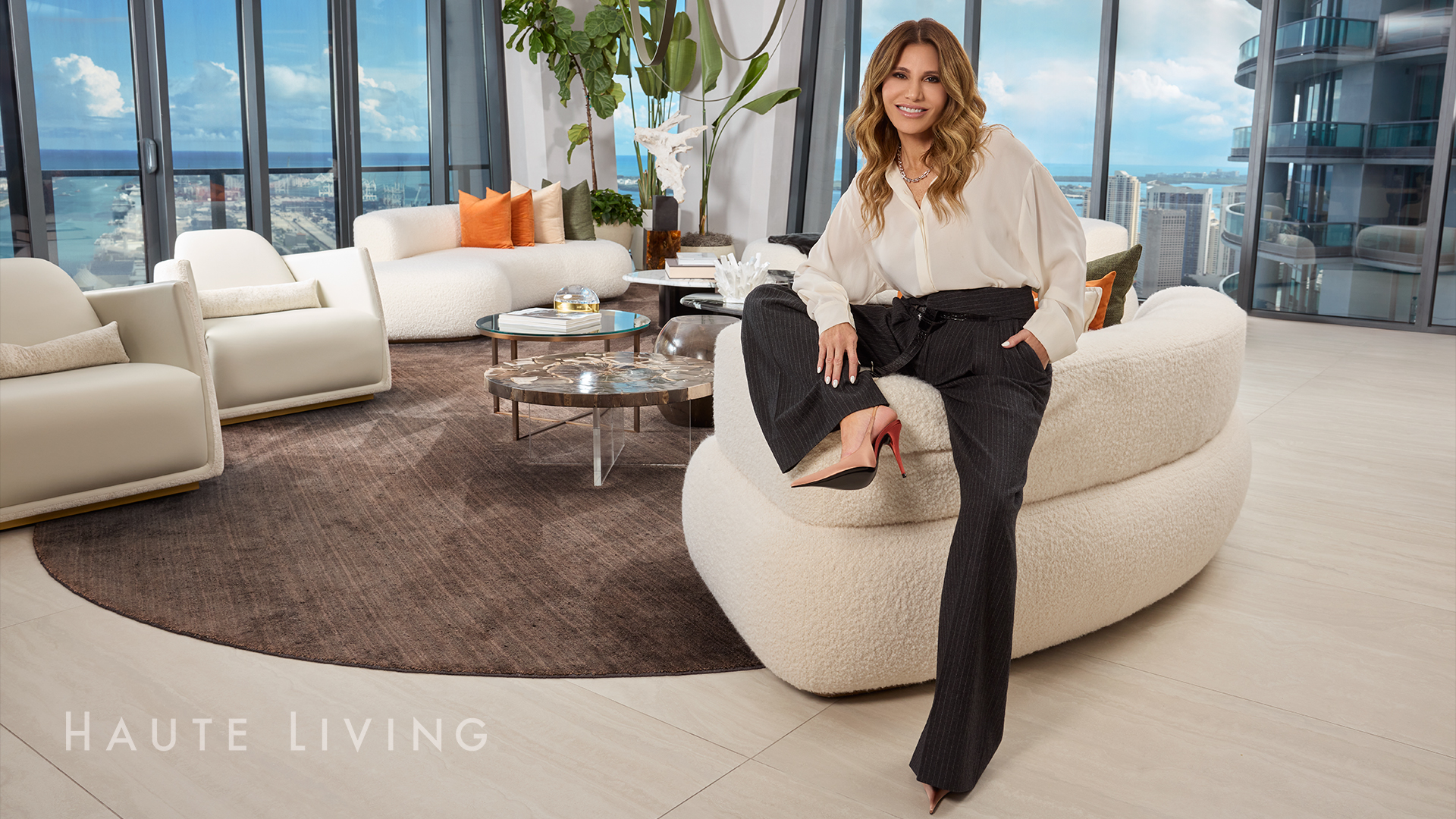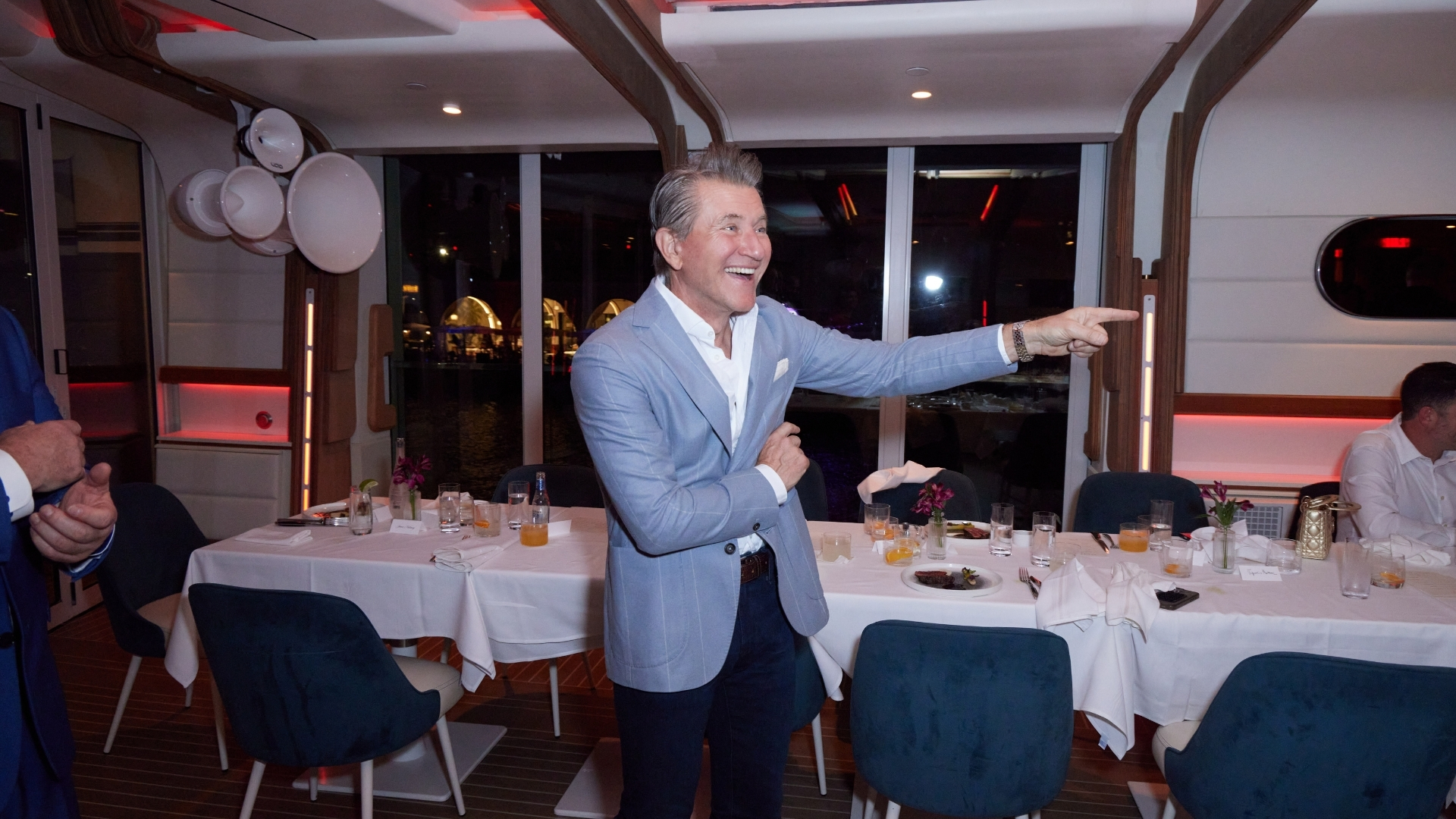Andre Iguodala On Upping His Game From The Basketball Court To The Boardroom
 Photo Credit: Mike Tamzil
Photo Credit: Mike Tamzil
Photography by TAMZ / Alessandro Martino
Styling by Lina Palacios
Shot on location at Penthouse 4203, The Reach Residences at Brickell City Centre
It’s March in Miami and the weather is perfect. We are in one of the beautiful multimillion-dollar penthouses of the Reach Residences at Brickell City Centre. Just a day ago, the NBA announced that it would suspend games until further notice due the pandemic we all know as COVID-19.
Andre Iguodala, Miami HEAT’s latest acquisition and New York Times Best Selling author, joins Haute Living for a little one-on-one and discusses his memoir, The Sixth Man, his endeavors outside of the court and his transition to the Magic City.

CARDIGAN: Loewe
JEANS: Dsquared2
WATCH: Ulysse Nardin Skeleton X in Carbonium/Gold
Photo Credit: Mike Tamzil
HAUTE LIVING: You wrote in your memoir, The Sixth Man: “Pretty much everything I learned about how to be successful, how to show up for life, how to go for what I want and how to be prepared came from my mom.” Can you elaborate on this? The foundation of who you are is important, and family was the cornerstone of where your story begins.
ANDRE IGUODALA: Yeah, mom was pretty dope. She would navigate through different environments and I picked that up pretty early. Whether we were in church, or she was at a parent-teacher conference or we were at the Boys and Girls Club, or we were at a barbecue, she could maneuver [through] different personalities, different people—she learned how to adapt and be able to communicate to get her point across. Seeing how my mom delegated all the arenas of life taught me the right balance. At the end of the day, balance is what I have been recently learning, especially being a professional athlete, having the stigma of ‘you are just an athlete.’ What’s an athlete supposed to look like? What kind of car does he drive? How do you act? How do you speak? What kind of endeavors do you do outside the game—which they really don’t want you to [do], they want you to focus on the game. Just [understanding] the mental capacity of being a professional athlete and how it evolved and seeing how important that balance is. If you say basketball isn’t everything, it is frowned upon and it’s always been like this, especially with African-American men. But I prepare better than anyone when it comes to it. And I think you have to keep that point [balance] front and center and let people know that is not all of who you are.
HL: You are so much more than that. It was impressive to learn that as a young man, your grades were just as important as sports. Being successful off the court seems to have always been a part of your vision for yourself.
AI: What was interesting about that is that my mom was always like, ‘You are going to learn to read and write and do it at a high level.’ And then the mindset came where I wanted to get it done and be the best at it. And it was like riding a bike, like breathing. My mom was always telling us, ‘You have the thirst for knowledge. You have to get out of here, you have to go see the world.’ So, not really knowing what that meant, I went to school and I already knew how to read and write. But, the part that really motivated me was that I was very competitive. Once I started learning about grades—I set the goal that I wanted to be the smartest person in my class, especially because all the kids that were smart didn’t look like me.

Photo Credit: Mike Tamzil
HL: That’s what made your coaches take you seriously—your grades. The scene that you painted on your first day of high school, when you walked into the classroom as an honor student and the teacher asked for your papers to confirm that you belonged there—that was powerful.
AI: I will never forget that. She asked me for my schedule and asked me if I was sure I knew where I was at. That’s when it all clicked and I started seeing the world a little different. I always hear that I throw race into it. But, from that moment on, I started seeking out the history of our country and its relationship with people that look like me. In college I took every African-American studies course and, still until this day, I pick up those books. I have a rotation of different types of books I read, whether it’s a biography or a self-help book or a finance book with business or black history and empowerment books. Right now, I just finished The Art of Happiness by the Dalai Lama. I learned from that book that we have things backwards. Everything we do, especially in a capitalist society, everything we do is for ourselves—whether it is [looking at] how many likes we have or painting a picture of who we want people to see us as, or showing people what we got, what we earned. We are all here to serve one another. That’s something I have made my personal mantra. How can I help maximize the person that’s closest to me, that works with me on a daily basis. Every time I go into work and I’m working with my guys, I’m learning about them. I’m asking them questions like, ‘What are your hobbies?’ They think it’s small talk, but there is actually a purpose behind it. I’m trying to figure them out. So, at the end of the day, if there is one piece of advice that I gave that they can take and move forward and it makes them become a better person or a better athlete—that’s what I want to do. That’s the approach that I’m taking.
HL: In your memoir, you share a moment in your development as a player when you were challenged because you recognized that you were no longer the dominant player on the team. You started paying attention to your teammates to see where you could set them up for success. Do you employ that same strategy professionally?
AI: That’s what I’ve taken on as one of my jobs. You don’t hear about too many people in any workplace where that is something they try to do. I always tell my teammates that this goes way beyond basketball. And I always say, when we are playing, [that] most guys have their posses, their entourage, your friends and family, those you grew up with. You bring them along your journey, you employ [them] and bring them with you. But, when you’re done playing, you have a wife, family, kids. And the posse kind of phases out. And, I tell them, when you go on a vacation, when you are done playing, you are not traveling with 10 people on vacation. It’s basically you, your wife, and your kids—but when you want to get away, who are you traveling with? Who can actually travel with you that you don’t have to pay for? Those are your teammates. I tell them, ‘I’m gonna be the person you go on vacation with.’ That’s from age 35 until the end. And that’s a very long time. So these relationships go much further beyond basketball, ‘cause who [else] can relate to the mental and physical struggles that we went through, besides us? And we can understand and relate to one another like no other.

JEANS: Dsquared2
WATCH: Ulysse Nardin Skeleton X in Carbonium/Gold
Photo Credit: Mike Tamzil
HL: Why did you decide to write this memoir? And why did you decide to do it with Carvell Wallace?
AI: I guess, to answer the Carvell question first, I was reading a lot of articles with my business partner, Rudy Cline-Thomas, and we were always trading information. Or, if it was something he thought I needed to know, he would send it to me. Then we came up with the idea of writing a book. From that moment on, we were on the lookout for someone that could co-write this with us, whose tone could tell my story. We came across an article that Wallace wrote on an Atlanta rapper that was killed, Bankroll Fresh. It was the story of how he was on the up-and-up, rising in fame; just the way he died was crazy—in a hail of bullets outside the recording studio that he was at. And how that happened, [it] happens more than we think in the inner city, the plight of the African-American male in American society in the inner city—and he told the story so eloquently. He was able to tell his story from our perspective but make it relate to everyone. It was really powerful. And the backstory about writing the book was a conversation about the journey, the things we have been through, and what’s next. What are the next steps? So, we decided we were going to get into the tech space. Next, we were going to have all the athletes come into one space to open up our network to them and teach them. Then, we were like, ‘What else are we going to do?’ We thought [of] a podcast and then a book. I read Trevor Noah’s book, Born a Crime: Stories from a South African Childhood. It was powerful. He also has a podcast show. In reading his book, it sparked memories of historical things in my mind and how I grew up, bringing back childhood memories. And I had a lot of conversations with a lot of my teammates in terms of texts, asking what’s going on. I get a lot of texts, ‘Can you teach me about this?’ ‘Can you teach me about that?’ I can’t teach some of the things they want to know via a text message, it goes much further than that. So, that became a part of the story. You get so many questions from fellow athletes. I was like, ‘Okay, read this first, and then I’m gonna break it down to you.’ I was in a situation where I was on a championship run, dealing with the media on a daily basis. I had a few viral reactions and questions—and people were like, ‘Why did you answer like this,’ or, ‘You’re so carefree, you’re so vocal and so unapologetic, why is that?’ So, the timing for the book was perfect. I wanted to tell my story and also put it out there for fellow athletes. I had a close friend that bought the book for his whole team—and that is what I wanted to get out of it. And then I run into other athletes that tell me they read the book, and that is what moves me and what I’m most proud about.
HL: There’s a poignant story that you share about being in a golf club with university boosters [referred to by the NCAA as ‘representatives of the institution’s athletic interests’], and you’re making small talk with one of them. When you mention that you’re from Springfield, Illinois, one of them says, ‘The birthplace of Lincoln,’ to which you share with your readers, “What the hell was I supposed to say to that? Yes, I was born in the same place as the guy who became president when I would have been a slave. How do you deal with that today?” Is race still a conversation for you and something you deal with daily in your profession?
AI: Yes, for sure. I think women are doing a really good job at being able to voice themselves in this time right now. When you interact with people, you know based on the interaction, you know that they are acting the way they are acting because of the way you look. And I have seen this my whole life. I happen to be able [to] navigate just like my mother did. This is how you put someone in check who interacts with you this way. I read the Bible daily, and I see a lot of messages. For example, To whom much is given, much will be required. (Luke 12:48). So, when I’m confronted with situations l perk up, like, ‘Aw man, this is actually the good work,’ like I can’t wait to see how this goes. And then, from there, you can learn from it. And that just became my life: looking to tackle obstacles. I always tell my son, ‘Never be idle.’ It’s a Navy Seal saying, ‘Never be idle, never just be there.’ Either your mind is working to find something, or you find it and you seek it and crush it. We talk about it in basketball. You should never be idle on the basketball court.

Photo Credit: Mike Tamzil
HL: Tell us about your kids. Has being raised by a single mom influenced the father you have become to your children?
AI: Being a parent is something you are never prepared for. When you are around other people’s kids it’s one thing, but when it’s your own, you have a whole different perspective on it. You see life as precious. Especially having girls. I have two girls and a boy. It’s funny because gender plays a role in how you parent. With my son, I was like, ‘Fall. Please fall so you can learn how to get up.’ But with girls, you say, ‘Be careful falling.’ It’s an interesting dynamic and you try to find the balance between being stern and being hard enough, but at the same [time] making sure that they are comfortable enough to come to you with an issue that they may have because you don’t want them to feel a barrier. And that’s the hardest balance to have. I feel like I’m just learning on the fly because every child is different. The time I spend with my kids has been the happiest. Winning championships is fun, but being with your kids when they are having success at something or when they are having fun, there’s nothing like that. That’s what gives you the appreciation of life. That’s where you learn what’s really important in life.
HL: Off the court, you are involved in the tech world. What prompted you to get into it? How did you get into it?
AI: The tech world started as an exercise in accountability. As a professional athlete, you have an agent and a financial advisor. Those are the two key positions you hire first and foremost. One guy handles all your contracts and business affairs and makes sure he brings you in as much money as your talent says it can bring in. And the other is in charge of safeguarding your money and makes it last as long as possible. But in trusting these people you can get lazy, and become comfortable with them handling everything and before you know it, you don’t have a clue how everything works. And that’s how you get swindled, how someone steals from you. At the end of the day, it’s just lack of knowledge. And 99% of the time it’s not the athlete’s fault, in my opinion. Because who is teaching us how to balance a check book? Who is teaching us how to budget or the value of a dollar when you had negative your entire life and you walk into abundance, how can you handle that? And then you are dealing with family and friends—especially for the African-American male. I have had many conversations where we were asked why we paid for our families’ homes—but look where we come from; where you may have been on government aid your whole life or government assistance, where there was no home, no ownership. So, you go through those things and you don’t know anything about money, so you just trust someone to handle your money for you. I have been through a few financial advisors and I always try to learn on my own anything [I can]. I always try to surround myself [with] people smarter than me. I had a few friends that were in the financial sector, I asked a lot of questions, I read a lot of books. I read Rich Dad, Poor Dad and Standard Important Guide to Investing; those were the first two books I read. And then I met my current business partner through a teammate and he just started challenging me. [He] would ask me, ‘What’s one of the hottest stocks right now? Why is the market up? Why is it down? Why are we going through a housing crisis?’ From there, he asked me to start my own e-trade account. So, we started investing to see how much I could make in returns. All of this was to figure out why my financial advisors were charging me what they were charging, and what fees were involved. Because ultimately, if he loses or makes money for me, he still gets paid based on how much I have in the account. What I discovered with e-trade was that I did really well and what yielded me the most return were tech stocks. So, I started following tech stocks daily and with that, you become a non-emotional investor. And I read Warren Buffet’s book, The Snowball: Warren Buffett and the Business of Life, and I learned that you can’t be fearful and emotional when investing. I always like to tell the backstory of being an athlete. People think that of you get $50M, you should be set for life, but in reality, you should be scared shitless. ‘Cause, for one, it’s only $25M, unless you live in Florida and you get $30M. But, when you don’t realize you are only getting $30M and you spend $40M, now you are in debt!
 Photo Credit: Mike Tamzil
Photo Credit: Mike Tamzil
HL: Now that you brought it to Florida, how is our Magic City treating you? How has the transition been with the Miami HEAT?
AI: Miami has been good to me. I’ve been eating wonderfully! You have a very vegan-friendly environment. I go a lot to Beaker & Gray and Love Life Café. I often walk to Almalibre Açaí Bar. People ask me why I walk there. I love to walk. I walk everywhere—people sometimes ask for a picture, so I take a few pictures. Overall, Miami has been very welcoming. The Miami HEAT has this thing, ‘Miami HEAT Culture’ and they like to joke [that] we are not for everyone. They really embrace not being for everyone. If [you] ask the other 29 teams in the NBA what’s a game like against the Miami HEAT, you are going to get the same response: they play really hard, they are focused, they are locked in to the game. You have to come to that game to beat them no matter how talented you are. Teams come in really prepared to play against us. And when teams really celebrate after they beat you — you know you have their respect. The environment is incredible. I randomly read Pat Riley’s book, The Winner Within, six years ago. You [can] see a lot of similarities in how he coached the team in L.A. with the Lakers and how he built the culture with the team—they are a hard-nosed team, bruisers—and it’s the same down here. It’s a very family-oriented organization where they welcome you with open arms and once you become a part of the family, you are a part of the family for life and you can feel that right away. Whatever they can take care of, they will do it and that is pretty special. They give you a very warm welcome and once you step on the court it’s all business. It’s like, ‘You are part of our family and we are going to help you maximize your talent and we are going to hold you accountable; let’s strap on your boots and get to work.’
HL: As an avid golfer, surely you know that Miami has its fair share of beautiful courses. Have you had a chance to play any of them?
AI: I haven’t been able to play golf since I arrived because on my free time, I’m working remotely with my team back in San Francisco on my side gig. The day before I got traded, I got hired at Comcast Ventures. I’m a Venture Partner on the Catalyst Fund where we invest in underrepresented entrepreneurs and founders of tech companies. So, anytime I have free time I will work out and then be on my computer and on my phone. I’m studying what makes a great company and where I should invest. It’s been pretty busy, I haven’t had the chance to enjoy Miami but I am enjoying playing for the team and the organization.


